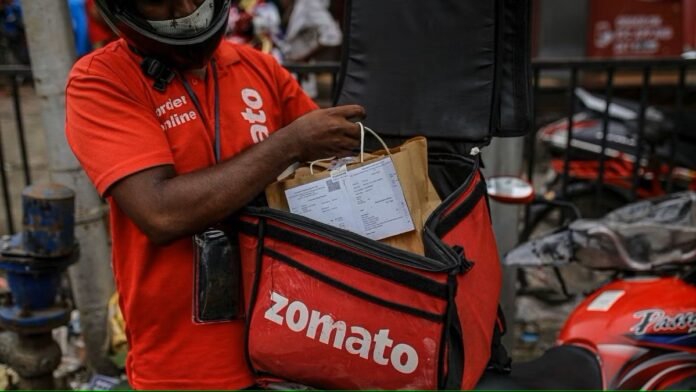Zomato, one of India’s largest online food delivery platforms, has come under fire after a man alleged that the company was involved in supplying fake paneer (a type of Indian cottage cheese) to various food outlets without proper disclosure. The accusations have triggered a wave of outrage among consumers, raising concerns about food safety and the integrity of online food delivery services.
The Allegations
The controversy erupted when a customer claimed to have received fake paneer in a dish ordered via Zomato. According to the man, after consuming the dish, he suspected that the paneer was of substandard quality and took it upon himself to investigate further. Upon contacting the restaurant, the man was reportedly informed that the paneer had been supplied by Zomato as part of a bulk distribution service, and the restaurant had not been made aware that it was not authentic paneer.
The man alleged that Zomato had supplied synthetic or imitation paneer to restaurants under the guise of real paneer, thereby misleading both the restaurant and the customer. The incident has sparked widespread criticism, with consumers questioning the platform’s practices and demanding accountability.
Consumer Trust at Stake
Zomato, known for connecting customers with restaurants and food outlets, enjoys a vast consumer base in India. However, this accusation has put the spotlight on the company’s food sourcing practices and quality control mechanisms. If the allegations hold true, the incident could significantly damage the trust consumers place in Zomato to deliver safe and authentic food.
In India, where paneer is a staple in many households and a key ingredient in numerous dishes, the idea that fake paneer could be supplied through a trusted delivery service is alarming. Consumers often rely on these platforms to ensure they receive food from reputable sources, and any compromise on quality is seen as a serious breach of trust.
The Rise of Food Fraud in India
The alleged Zomato fake paneer incident is not an isolated case but part of a growing trend of food fraud in India. As demand for food delivery services skyrockets, driven by convenience and the changing lifestyle of urban populations, instances of adulteration and counterfeit food items have become more frequent. From imitation dairy products to spurious spices, food fraud is an increasingly pervasive issue in the country.
Fake paneer, often made from ingredients such as starch, synthetic chemicals, and low-quality fats, can pose serious health risks. Consuming adulterated paneer can lead to digestive issues, allergic reactions, and, in severe cases, food poisoning. Therefore, the allegations against Zomato have raised significant concerns about consumer health and safety.
Zomato’s Response
As the accusations gained media attention, Zomato issued a statement denying any involvement in supplying fake paneer to restaurants. The company clarified that while it acts as an intermediary between consumers and restaurants, it does not directly supply ingredients to eateries. Zomato emphasized that restaurants are responsible for sourcing their ingredients, and the company plays no role in determining the quality of the food served.
In a statement, Zomato’s spokesperson said, “We take food safety and quality very seriously. Our role is to facilitate food delivery between restaurants and customers, and we do not supply raw materials to restaurants. We are looking into the matter to understand the specifics of this case and to ensure that our customers continue to receive the highest quality food from the restaurants we partner with.”
The company also urged consumers to report any instances of food quality issues through its app, where complaints are addressed by the relevant restaurant and Zomato’s customer service team.
Legal and Regulatory Implications
The incident has prompted calls for stricter regulatory oversight in the online food delivery industry. As more consumers turn to platforms like Zomato and Swiggy for their meals, ensuring that these companies maintain stringent food safety standards becomes paramount. Industry experts have suggested that regulatory bodies such as the Food Safety and Standards Authority of India (FSSAI) should take a more proactive role in monitoring the sourcing practices of both restaurants and delivery platforms.
If Zomato is found culpable, it could face legal challenges under food safety laws. However, proving such allegations can be difficult, as the onus of ingredient sourcing typically falls on the restaurant. Despite this, the public outcry surrounding the incident may push for greater scrutiny of Zomato’s business practices and its accountability in ensuring the quality of food delivered through its platform.
The allegations against Zomato for supplying fake paneer have sparked a broader conversation about food safety in India’s rapidly growing food delivery industry. Whether or not the accusations are proven, the incident serves as a reminder of the potential risks that consumers face when relying on third-party platforms for their meals. As the investigation unfolds, both consumers and regulatory bodies will be watching closely to ensure that the highest standards of food safety and transparency are upheld.
For Zomato, this incident underscores the need for transparency and robust food quality checks, not only to safeguard consumers but also to maintain the trust that has made it a leader in the food delivery space.
